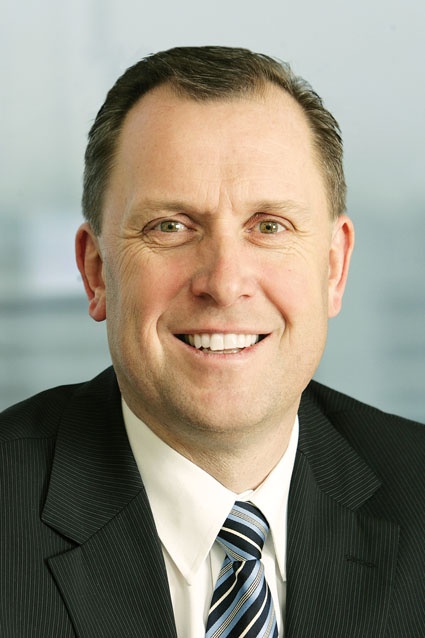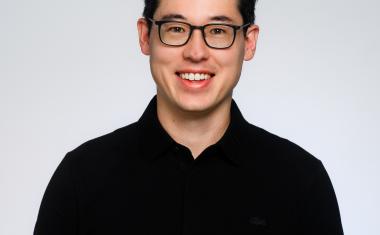Integrated, Open and Future-proof
Within the Siemens Building Technologies Division, the business unit Security Solutions offers customers integrated security solutions ranging from the analysis of requirements and...

Within the Siemens Building Technologies Division, the business unit Security Solutions offers customers integrated security solutions ranging from the analysis of requirements and project design, installation and integration, up to training and maintenance. Heiko Baumgartner talked with Frank Pedersen, CEO of Security Solutions, about the latest developments.
A year ago, the integration of VistaScape and Novotec into your security platform Siveillance was a hot topic. Was the integration successful, and what is the latest news about this product?
F. Pedersen: The integration was successful and has now been completed. With Siveillance we have introduced a product line which combines the video analysis technology of VistaScape with the existing Siemens range of video and security technology. The extension to include Novotec control centre functionality has enabled us to develop a state-of-the-art control centre system. With Siveillance ELS Web we now have an impressive offer for interventional forces such as fire services and police. With our Siveillance ELS Vantage solution we can serve customers with security-sensitive infrastructures, e.g. ports, airports or industrial plants. In October we have launched a completely new solution. Siveillance Fusion rounds off the lower end of our range and is explicitly orientated to companies who wish to modernise an existing security infrastructure and have legacy problems. Many of these companies are looking for practically orientated solutions for this task.
What kind of legacy problems occur with these customers?
F. Pedersen: They are confronted with inadequate compatibility of their existing systems. Many businesses have increased security requirements and already have a security infrastructure or at least security technology elements in place. Due to growth as well as additional acquisitions, structures have grown up in which you meet everything, from ultra-modern elements to less modern systems which still fulfil their purpose, to completely obsolete technologies. As well as this, the systems are usually from a variety of providers. You find various types of video cameras, as well as different types of intrusion detectors and access control systems, which cannot communicate with each other properly due to closed protocols and systems.
What is the solution, and what do you offer customers as a solution for their problems?
F. Pedersen: In such situations some of our competitors take the easy way out and offer to get rid of everything and install a completely new system. This is very expensive, and in many cases it is also unnecessary. With Siveillance Fusion, we are launching a completely new open system, with which we can integrate everything and solve this type of problem. We downwardly integrate all components, which means that at IT level, we integrate everything into a single system, right down to the end devices in the fields of access control, intrusion detection and video. Siveillance Fusion is a system which we have tested for two years in cooperation with our customers, and which is now ready for market.
If I understand you correctly, the new system is suitable for all businesses with their own IT infrastructure, which means except for small retailers, for all businesses up to large groups?
F. Pedersen: Yes, I think that we no longer need to prove that we are in a position to secure large projects and areas. However, we also want to show that our solutions are just as well suited for small to medium sized projects. Enormous investments are not necessary for a Siveillance Fusion soultion. You can achieve a great deal with a minimum of financial outlay, and with this product we are deliberately not just targeting large groups but rather also small and medium sized businesses. Siveillance Fusion is interesting for everyone who wants to have an open system and does not want to commit themselves to a particular technology, hardware or manufacturer. The objective is to be open and flexible. The system is flexible, for example because it permits simple integration of IT elements from the personnel area, e.g. ERP systems.
You mentioned projects which have already been implemented during the test phase. Could you give us a few examples?
F. Pedersen: The system is already being tested, or is in full operation, in over 200 applications. This includes an Indian department store chain, a telecommunications company and an oil and gas company. In all of these, Siveillance Fusion provides complete control of day-to-day security activities.
Was the development of Siveillance Fusion carried out in cooperation with Siemens IT Solutions?
F. Pedersen: No, it was an independent development by Siemens Building Technologies. Of course, we collaborated with Siemens Corporate Technology, Siemens´ own development department. However, with the development, we did not want to bind ourselves to our own technologies, but rather to develop a genuinely open and flexible system.
The integration of a wide variety of different components into a functional system is certainly the trend. However, the combination of IT security and classic security technology is also being widely discussed at the moment. How do you see developments in this field?
F. Pedersen: The convergence of IT security and classic security technology is on the advance. In our opinion, this convergence will need to be seen from both sides in the future. During the daytime, it must be ensured that even at peak periods the IT network provides sufficient capacity to enable the classic tasks of video surveillance and alarm management. In the final quarter of this year we will be presenting "Security Gate", a new product which ensures just this. On the other hand, "Security Gate" is also able to analyse unusual data flows, e.g. at night, which could indicate a loophole in the IT network or an external attack. "Security Gate" therefore facilitates and optimises work with both types of network.









